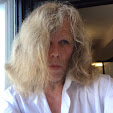Monday, October 22, 2012
Donna and I attend: Elie Wiesel at Boston University
Donna and I attended a lecture tonight at Boston University titled In The Talmud: Is Martyrdom or Sanctification of His Name a Valid Response. It was given by Elie Wiesel.
Donna and I had dinner near B. U. West and she asked if she could go to Marsh Chapel to pray. Again, I have a policy that she can enter any empty church whenever she walks by and can see if its open. She was alone in Marsh Chapel praying after dinner. I'm not that familiar with the campus, and downstairs last week there was a poster announcing lecture- so I asked one of the young women working for the church what today's date was. It so happenned that there was a lecture scheduled for tonight an hour later. While I was asking for directions there seemed the slight possibility that the lecture was already in progress in the Chapel, but we were whisked away by one of the faculty before Donna could decline. She had offered weeks before, but now it was spur of the moment. Really, she just has a habit of using the church and sitting there quietly for a couple of minutes.
The lecture was well worth being there and being there for an hour. Again, I would lean back on Camus- if human suffering is not absurd, life is. It is absolutely futile to ask God whether or not we are allowed to suffer;
the entire soliloquy of Hamlet is non-relevent and non-applicable after that. It's nice to have Hamlet ideas to look upon, but if life is absurd, are they not obsolete. And since I mentioned that, he also journeys into where you would confront the Talmud or religion about whether you could live or die "for love" and whether love has or can have a greater "meaning" that God, or greater value- the Judaic law that he points to is one of ethics, the act has value because it is ethical by a transcendental standard, whereas I usually begin with a metaphysical aesthetics, the act has value only because it is beautiful and it is beautiful because there is no metaphysic that can invest it with any eternal value. Life is beautiful because it doen't need a God inorder to exist and it is absurd from that veiwpoint.
Weisel's position was that there is a specific Judaic Law invitably leading to God's view of "the chosen"-it can
be a point of departure for anyone. I just mentioned genericlly, "they have to be good Judaic laws"
Over all, I like the summary made from his message as a humanism, that is to say if that's how he arrived at it, that's fine in that he places a value on living and being alive. Just because he Talmud is ethical doesn't say that it is the word of God. If if apparently brings a conception of sins that are forgivable and those that are not, then you would live with the forgivable ones:Wiesel is quoted on the handout, "Whatever you do, remember the moral dimension."
By the time he was finished he gave Donna a little bit of a smile
Scott Lord, film criticism I had seen Nadine Gordimer at Harvard University and Saul Bellow at the Massachusetts Institute of Technology, but also attended a church service with Mother Theresa (all clergy affair, but a Fransciscan priest gave me the one rare ticket). So Donna understood that I would want to make it to the lecture. I'll be honest, I've missed a number of lectures open to the public in Boston. But it was worth more being something non-predicted, so I told her that the important thing is that while we were out she went inside the church to pray when she felt like it. Whatever you do, remember the aesthetic dimension (and may the beauty of the human being lead you to the ontological if necessary). It was funny, Donna just likes to know she can bring a bottle of water into the museums and one of the students had some water there, so I was explaining that the Mother Theresa had said "If you give anyone a glass of water it is in Jesus's name" and that I purported that if you needed water then, of course, out of kindness, I didn't see the harm. (Christian kindness and romantic love wouldn't have any discrepency.)
Blog thoughts of
Scott Lord on Silent Film, Scott Lord on Swedish Film, Scott Lord on Mystery Film
at
8:06 PM


Scott Lord
Scott Lord,
Scott Lord and Girlfriend,
Scott Lord and Girlfriend
 Scott Lord on Silent Film, Scott Lord on Swedish Silent Film, Scott Lord on Danish Silent Film
Scott Lord on Silent Film, Scott Lord on Swedish Silent Film, Scott Lord on Danish Silent Film
Subscribe to:
Post Comments (Atom)

No comments:
Post a Comment